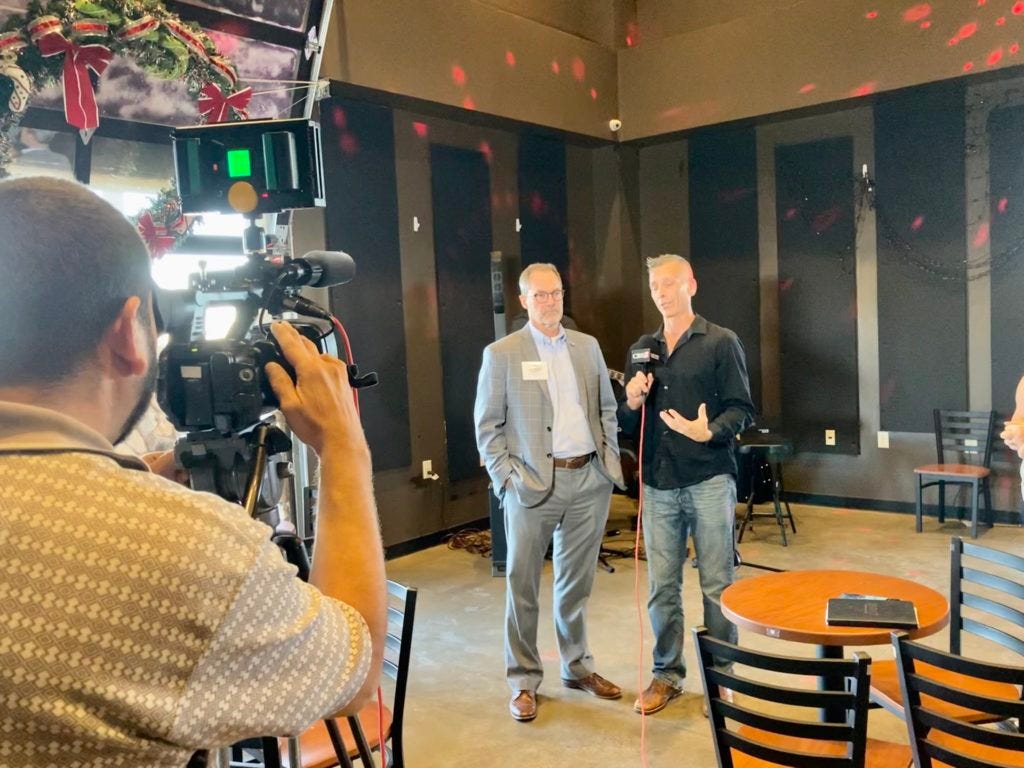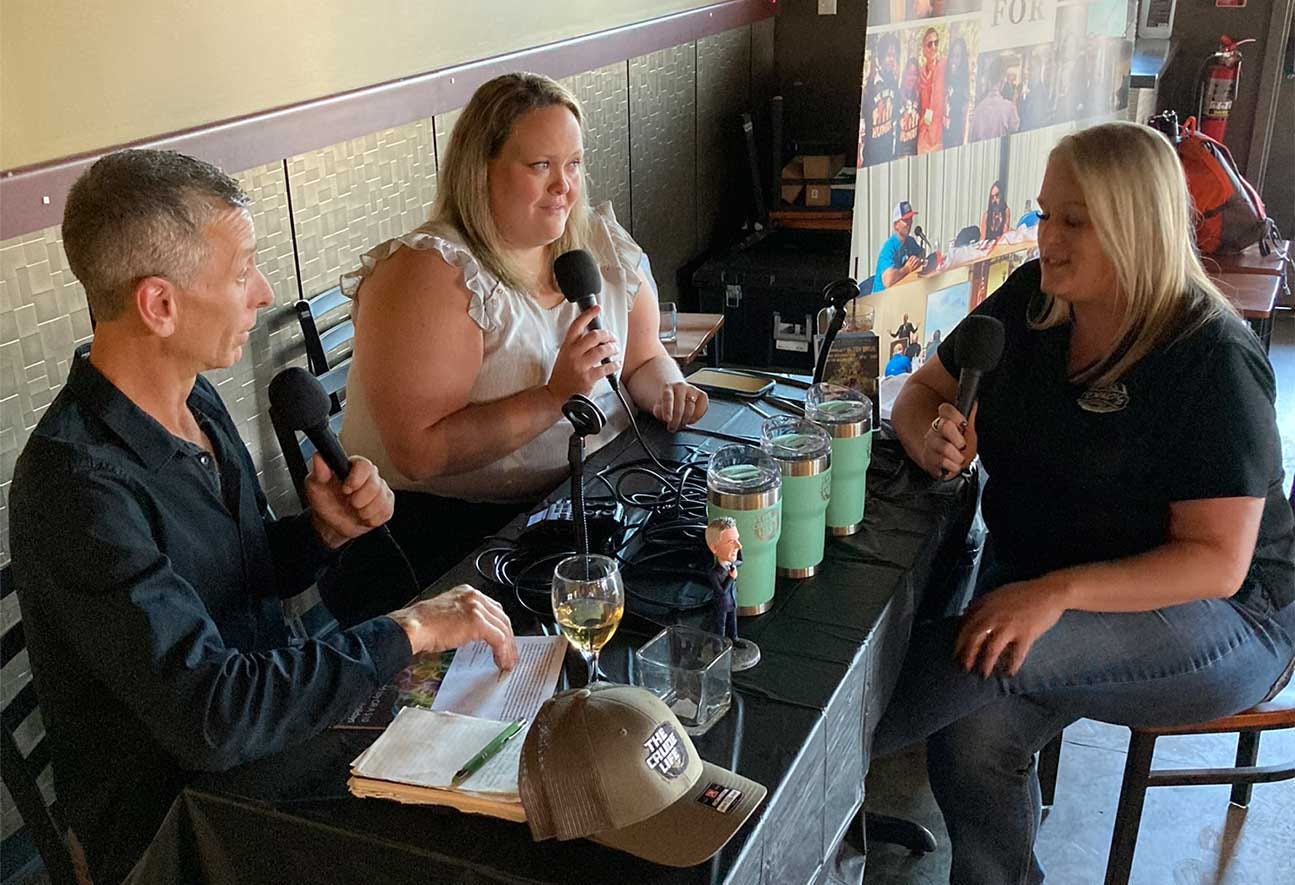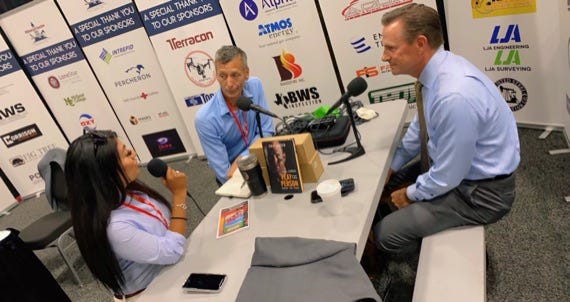National Slavery and Human Trafficking Prevention Month: Addressing Human Trafficking in the Oil and Gas Industry
The oil and gas industry, with its expansive operations, transient workforce, and remote sites, can be a target for human trafficking. Companies and workers are becoming educated.
Human trafficking, a pervasive global issue, affects industries worldwide, including the oil and gas sector. National Slavery and Human Trafficking Prevention Month, observed every January, serves as a critical period to raise awareness and enhance efforts to combat this grave violation of human rights.
This feature delves into the presence of human trafficking within the oil and gas industry, highlights companies supporting awareness campaigns, and examines initiatives being undertaken to address the problem.
The Presence of Human Trafficking in the Oil and Gas Industry
The oil and gas industry, with its expansive operations, transient workforce, and remote sites, can be a target for human trafficking. Workers are often recruited under false pretenses, transported across borders, and subjected to forced labor or exploitative conditions.

Commonly reported issues include:
Labor Exploitation: Vulnerable individuals, often from impoverished regions, are deceived with promises of lucrative employment. Once on-site, they face substandard working conditions, withheld wages, and limited freedom.
Sex Trafficking: Isolated oil and gas sites, particularly in remote regions, may create demand for illicit activities, including sex trafficking. Victims, primarily women and children, are often coerced into exploitation near these facilities.
Factors Contributing to Vulnerability
Geographic Isolation: Remote oil fields, pipelines, and drilling sites can lack proper oversight, making them fertile grounds for illicit activities.
Transnational Operations: The global nature of the oil and gas industry involves complex supply chains and recruitment practices, increasing the risk of trafficking.
Contract Labor: Heavy reliance on third-party contractors can obscure accountability and make it easier for trafficking to occur unnoticed.

Companies Supporting Awareness Campaigns
A growing number of companies within the oil and gas sector recognize the need to address human trafficking. These organizations are leveraging their influence to create awareness and drive change:
ExxonMobil: The company actively supports anti-human trafficking initiatives through partnerships with NGOs and compliance with global labor standards. ExxonMobil integrates anti-trafficking clauses in supplier contracts and audits labor practices within its supply chain.
Chevron: Chevron collaborates with organizations like the Global Business Coalition Against Human Trafficking (GBCAT). It also provides training programs to help employees and contractors identify and report trafficking.
Shell: Shell has implemented human rights due diligence processes to prevent trafficking in its operations and supply chains. The company also sponsors community programs aimed at raising awareness of human trafficking risks.
BP: BP works to ensure ethical recruitment practices across its supply chains and supports local initiatives that provide education and job opportunities, reducing vulnerabilities to trafficking.

Ashley Smith, Truckers Against Trafficking, has joined The Crude Life several times as a guest and a co-host as an educator of Human Trafficking in industry is and why she is educates professionals who attend oil and gas conferences.
From border security to the domestic issues, no question or vein is off limits when discussing this important issue with Ashley.
Prevention and education are reoccurring themes throughout the interview. For example, when discussing “Johns”, Ashley points out the traditional pop culture version is rarely the reality. Most likely it is a woman or an ex-military person running the show. Female “Johns” can be called “Joans” or “Jos”.
Furthermore, the discussion goes deeper into the issue of white collar targets at sporting events, trade shows and professional networking events.
The idea of the “lot lizard” and “business escorts” are compared and contrasted in the interview.
Click here for interview with Ashley Smith from 2021 at the Williston Basin Petroleum Conference.

Industry-Wide Efforts to Combat Human Trafficking
The oil and gas sector is addressing human trafficking through a multifaceted approach, including policy enforcement, training, collaboration, and technological innovation.
Enhanced Policies and Compliance Measures:
Many companies have adopted stringent anti-trafficking policies in line with international standards such as the United Nations Guiding Principles on Business and Human Rights.
Mandatory supplier audits and contracts with anti-trafficking clauses ensure accountability throughout the supply chain.
Training and Awareness Programs:
Employees and contractors are trained to recognize signs of trafficking and respond appropriately. Training sessions often focus on identifying fraudulent recruitment, suspicious activities, and how to report concerns.
Collaboration with NGOs and Governments:
Partnerships with non-governmental organizations (NGOs) such as Polaris and the International Labour Organization (ILO) help companies access expertise and resources for combating trafficking.
Collaboration with local governments aids in implementing effective labor laws and ensuring victim protection.
Leveraging Technology:
Advanced monitoring systems, such as blockchain, are being used to track labor practices and ensure transparency within supply chains.
Mobile apps and digital reporting platforms enable workers to report trafficking incidents anonymously.
Victim Support and Rehabilitation:
Some companies fund shelters and rehabilitation programs for survivors of trafficking. These initiatives provide medical care, counseling, and skills training to help victims reintegrate into society.

Jason Spiess is joined by special guest host Maira Vargas to interview Midland Mayor Patrick Payton. at the Shale Energy Resources Conference and Trade Show at the Midland Horseshoe Arena
Click here for interview with then-Midland Mayor Patrick Payton on the issues of human trafficking in the Permian Basin.

Challenges in Addressing Human Trafficking
Despite progress, significant challenges remain:
Complex Supply Chains: Identifying and addressing trafficking in extensive, multi-layered supply chains is a daunting task.
Lack of Awareness: Workers and managers often lack sufficient knowledge about trafficking, leading to underreporting.
Corruption and Weak Enforcement: In some regions, weak governance and corruption hinder the effective implementation of anti-trafficking laws.
Success Stories and Best Practices
Several companies and initiatives have demonstrated measurable success in combating trafficking:
TotalEnergies’ Ethical Recruitment Program: The company’s initiative ensures fair treatment of workers during recruitment, eliminating unethical labor practices.
Partnerships in the Middle East: Collaboration between oil companies and local governments in the Middle East has led to improved labor inspections and enforcement of anti-trafficking laws.
Community Engagement by ConocoPhillips: ConocoPhillips invests in community education programs to raise awareness and reduce vulnerabilities to trafficking.
A Call to Action
National Slavery and Human Trafficking Prevention Month reminds us of the ongoing battle against human trafficking. While the oil and gas industry faces unique challenges, it also holds significant power to drive change through its global reach and resources. By strengthening policies, fostering collaboration, and investing in technology, the sector can play a pivotal role in eradicating human trafficking and protecting vulnerable populations.
As consumers and stakeholders, we must advocate for accountability and support companies taking bold steps to combat trafficking. Together, we can ensure that the oil and gas industry becomes a leader in the fight against modern slavery, setting an example for other sectors to follow.
National Human Trafficking Hotline: 1-888-373-7888
Live Chat: humantraffickinghotline.org
Human Trafficking exists in North Dakota. The agencies, service-providers, and individuals working to address this issue face many challenges: educating the public, apprehending offenders, supporting survivors, and working towards prevention.
The 5th Annual Bakken Human Trafficking Summit will focus on a variety of topics related to sex and labor trafficking, sexual exploitation, pornography and more.
This event, organized by North Dakota-based nonprofit 31:8 Project, features several keynotes, breakout sessions, and panel discussions to better inform the community about sex and labor trafficking in Western North Dakota.
Our event speakers will include: law enforcement, healthcare professionals, human service representatives, and survivors of human trafficking.
The event takes place on May 20-21 in Bismarck, ND at St. Mary's Central High School located at 5802 Ridgeland Drive. Breakfast and snacks will be provided. Attendees will have a mid-day break to get lunch on their own.
Continuing Education credit and hours available for professionals attending the Bakken Human Trafficking Summit.
This event is for ages 18+ and open to the public. Due to the sensitive nature of the topic, discretion is advised. Scholarships are available.
Email programs@318project.org to learn more about scholarship availability.
HOST HOTELS:
Best Western Roosevelt Place - 1405 Skyline Blvd
Wingate by Wyndham - 1421 Skyline Blvd
There will be a social for attendees on the evening of Tuesday, May 20th.
Medical professionals, faith groups, law enforcement, human service providers, hospitality workers, business owners, parents/guardians, educators, service clubs, government officials, and other community groups are invited to attend as we work together to learn about the issues facing the region and the action steps we can take moving forward. Agenda is tentative and subject to change.
Below are the professional continue education hours and credits that were offered at the 2024 conference. 2025 is TBD.
2024 Professional Continuing Education Hours and Credits
State Bar Association of North Dakota: 12.0 ND CLE credits 0.0 ethics
ND Board of Counselor Examiners (NDBCE): 12.0 CEH credits
ND Peace Officer Standards (POST): 12 Contact Hours
ND Board of Addiction Counseling Examiners: 12.0 Contact Hours
ND Board of Social Work Examiners (NDBSWE): 12.0 Continuing Education Hours
ND Council on Abused Women's Services (CAWS ND): 1.25 SA Recertification Hours (per session)
ND Board of Nursing: 12.5 Contact Hours
General certificates available upon request
"The training and awareness 31:8 Project brought regarding human trafficking helped me recognize it on a traffic stop. Someone who is being trafficked (and I don’t think realized it yet) accepted help after a forced separation based on a warrant. Keeping a victim-centered approach, I connected her with victim advocates, a SANE nurse, and more. At the Bakken Conference where the woman spoke about not realizing she was being trafficked gave me the 'ah- ha' moment that helped me recognize it. So again, thank you! At least five other cops were involved in some capacity, and I was able to debrief with them and they learned a lot too. It also highlighted to me how much training is needed, but it’s really magnified when you see it in action." ~ ND State Highway Patrol Trooper
The mission of 31:8 Project is to equip and challenge society to proactively address issues regarding human trafficking.
“We educate, advocate, and raise awareness. This is accomplished through the following three program areas - Education, Survivor Mentorship, and Bravery Backpacks,” Shafer said. “We provide informative seminars, conduct research, and create curriculum applicable to all levels of education and forms of human trafficking.”
The 31:8 Project was formally registered as an organization on September 15th, 2015. Although they work with many groups throughout the United States and world, their current focus is on combating human trafficking in North Dakota and the Midwest.
For more information call 701.557.3750 or email info@318project.org.
Forms of Human Trafficking
Forced Labor: The term forced labor is defined in two separate sections of the U.S. Code. In the criminal statutes of Title 18, it encompasses the range of activities – recruiting, harboring, transporting, providing, or obtaining – involved when a person uses force or physical threats; psychological coercion; abuse of the legal process; a scheme, plan, or pattern intended to hold a person in fear of serious harm; or other coercive means to compel someone to work. Once a person’s labor is obtained by such means, the person’s previous consent or effort to obtain employment with the trafficker does not preclude the person from being considered a victim, or the government from prosecuting the offender. In the customs-related statute of Title 19, it is also defined in connection with the prohibition on the importation of goods produced wholly or in part by forced labor, including forced child labor; convict labor; and indentured labor under penal sanctions.
Debt Bondage: U.S. law prohibits the use of a debt as a form of coercion to compel a person’s labor. Some workers fall victim to traffickers or recruiters who unlawfully exploit an initial debt assumed as a condition of employment, while in certain countries some workers “inherit” the debt. Although contract violations and hazardous working conditions for migrant laborers do not in themselves constitute human trafficking, the imposition of costs and debts on these laborers can contribute to a situation of debt bondage. In other cases, employment-based temporary work programs in which the workers’ legal status in the country is tied to a particular employer present challenges to workers who would like to flee from such an employer.
Domestic Servitude: Working in a private residence can create unique vulnerabilities, particularly because what happens in a private residence often is hidden from the world, and it is easy to isolate a worker in a private residence. Domestic workplaces are often informal, connected to off-duty living quarters, and not shared with other workers. Such an environment is conducive to exploitation because authorities cannot inspect private homes as easily as formal workplaces. The use of informal, or even verbal, employment contracts compounds vulnerability. Foreign domestic workers are particularly vulnerable to abuse due to factors such as language and cultural barriers and lack of community ties.
Forced Child Labor: Although children may legally engage in certain forms of work, forms of slavery or slave-like practices – including the sale of children for exploitation, forced or compulsory child labor, and debt bondage and serfdom of children – continue to exist, despite legal prohibitions and widespread condemnation.
Sex Trafficking: When a person is required to engage in a commercial sex act as the result of force, threats of force, fraud, coercion or any combination of such means, that person is a victim of human trafficking. Under such circumstances, perpetrators involved in recruiting, enticing, harboring, transporting, providing, obtaining, advertising, maintaining, patronizing, or soliciting a person for that purpose are guilty of the federal crime of sex trafficking. This is true even if the victim previously consented to engage in commercial sex.
Child Sex Trafficking: Any child (under the age of 18) who has been recruited, enticed, harbored, transported, provided, obtained, advertised, maintained, patronized, or solicited to engage in a commercial sex act is a victim of human trafficking regardless of whether or not force, fraud, or coercion is used. The use of children in the commercial sex trade is prohibited both under U.S. law and by legislation in most countries around the world.
Everyday your story is being told by someone. Who is telling your story? Who are you telling your story to?
Email your sustainable story ideas, professional press releases or petro-powered podcast submissions to thecontentcreationstudios(AT)gmail(DOT)com.
#thecrudelife promotes a culture of inclusion and respect through interviews, content creation, live events and partnerships that educate, enrich, and empower people to create a positive social environment for all, regardless of age, race, religion, sexual orientation, or physical or intellectual ability.
CLICK HERE FOR SPECIAL PARAMOUNT + DISCOUNT LINK
The Agency is an American espionage thriller television series for Showtime produced by George Clooney and Grant Heslov and starring Michael Fassbender. The series premiered on November 29, 2024, and is based on the critically acclaimed French series Le Bureau des Légendes, created by Éric Rochant, that aired on Canal+ from 2015 to 2020.
The Agency is now streaming on Paramount+










